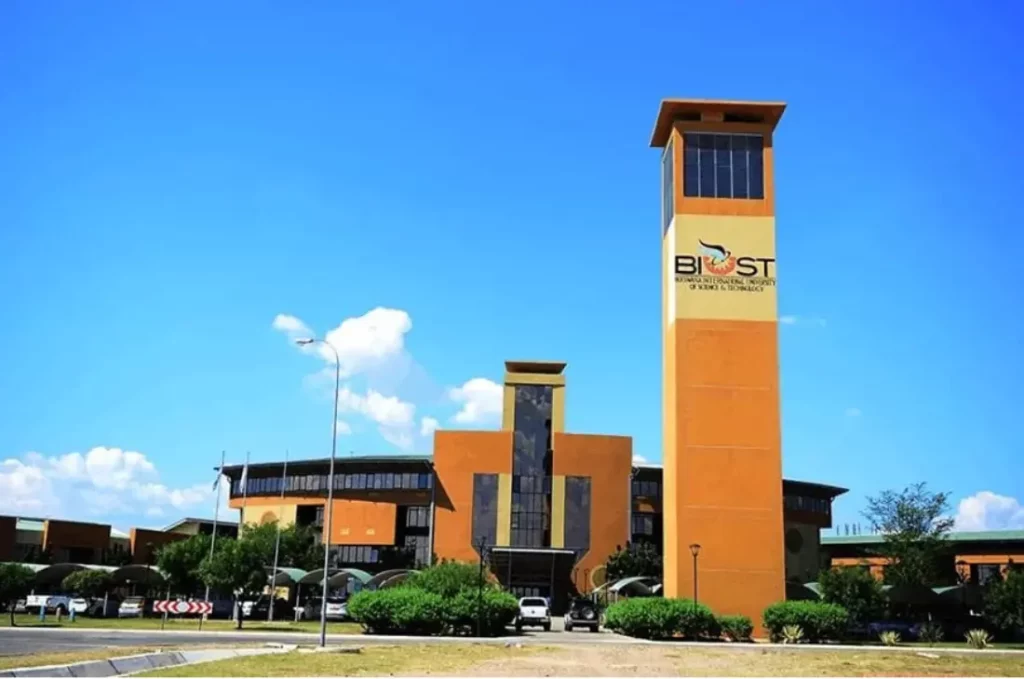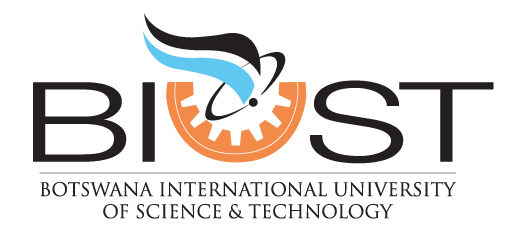
The Botswana International University of Science and Technology (BIUST) has developed a system that aims at holistically transforming the management of arable farming in Botswana. The University of Science and Technology is proud to announce that the team behind the transformative agricultural venture Temo Letlotlo Crop Management System (CMS) was invented by a diverse and dedicated group comprising of a team of 20 Batswana comprising of BIUST local academics and non-academics staff in collaboration with a number of postgraduate students and BIUST alumni.
The newly developed Temo Letlotlo Crop Management System marks a transformative shift in the way government services are delivered to farmers across the country. A team of BIUST representatives namely, Dr Thabiso Maupong team leader, Dr. Hlomani Hlomani and Mr. Ontiretse Bagwasi, state that Temo Letlotlo CMS as an automated productivity-based program with a focus on centrally revolutionising agricultural processes countrywide. These include application of funds, management of land, yields and many other factors that affect crop production.
The program, which is still work in progress aims to also streamline various aspects of arable farming from registration to post-harvesting, providing an efficient and automated approach to agricultural practices. Registration is already underway, showcasing active participation from Batswana farmers eager to engage with this groundbreaking initiative. The team reports that farmers are gearing up for the upcoming ploughing season and eager to start cropping plans and soil sample analyses. Land registration and leasing activities are ongoing reflecting the community’s enthusiastic engagement with the program.
Mr. Bagwasi highlighted the pivotal role of the Crop Management System (CMS) within Temo Letlotlo. The CMS acts as a comprehensive platform, registering individual farmers, companies and stakeholders. Integration with the National Identification System (NIS) and Land Information System (LIS) ensures accurate verification, linking farmers to their lands. Dr Thabiso Maupong further highlighted the CMS’s role in tracking farm production, lease agreements, and inventory of farm implements. The system’s capability to aggregate data enables the government in making informed decision particularly in mechanization plans and assistance programs for farmers. The development of this two-year project, known as Temo Letlotlo CMS, commenced last year and is expected to conclude by December of the following year 2024.
BIUST reports that training sessions have been central in ensuring the successful implementation of Temo Letlotlo CMS. Over 230 extension officers participated in a comprehensive three-day workshop in mid-January. The workshop equipped them with the knowledge to use gadgets provided by the government such as tablets and internet access for efficient navigation of the Temo Letlotlo CMS program. The initiative reflects a commitment to empower extension officers with the necessary tools to support farmers effectively. In August, BIUST and government representatives conducted nationwide training sessions providing extension officers with hands-on experience in registering farmers. The user-friendly nature of the system, coupled with a password-less sign-in feature, aims to encourage widespread accessibility for Batswana. Mr. Bagwasi urged citizens to explore the system online, emphasizing the availability of extension officers to assist those with gadgets but no internet connection.
As Temo Letlotlo continues to evolve and integrate technology into Botswana’s agricultural landscape, the nation anticipates a future where data-driven decisions, streamlined processes, and widespread accessibility will propel the farming sector to new heights. This transformative initiative stands as a testament to Botswana’s commitment to food security and sustainable development, marking a significant milestone in the nation’s agricultural progress. The project’s progressive approach does not stop at just automation; it delves into the intricate details of farming, addressing challenges faced by both small-scale and large-scale farmers.
Temo Letlotlo continues to unfold as it aligns with the government’s vision of leveraging technology to improve service delivery and enhance food security. The program doesn’t just stop at facilitating agricultural processes; it extends its reach to grant and loan applications, collaborating with entities like the National Development Bank (NDB). This holistic approach ensures that farmers not only have the tools for efficient farming but also access to financial support when needed.
Dr. Tlhomane elaborated on additional features such as Soil Sample Analysis, encouraging best farming practices. The system facilitates the creation of cropping plans based on soil analysis, providing estimates for yields, costs, and potential profits. These efforts speak to ensuring that crops are cultivated in environments conducive to their growth. This proactive approach not only benefits individual farmers but contributes to the overall health of the agricultural sector.
The emphasis on accountability and transparency is further highlighted in the provision for Soil Sample Analysis labs to register on the CMS. This opens up avenues for collaboration, as individual farmers can access services from these labs, receiving results directly on their profiles. The requirement for a cropping plan based on soil analysis adds a layer of planning and strategy to farming, aligning with global trends in precision agriculture.
In conclusion, BIUST’s Temo Letlotlo (CMS) program stands as a beacon of innovation in Botswana’s agricultural sector. Beyond automation, it addresses the core challenges faced by farmers, promotes sustainability, and aligns with national goals of leveraging technology for improved service delivery. The collaborative effort of academics, non-academics, alumni, and postgraduate students reflects a holistic approach to development, ensuring that Temo Letlotlo CMS becomes a catalyst for positive change in Botswana’s agricultural narrative. As the program continues to unfold, the nation anticipates a future where technology and agriculture seamlessly converge, fostering a resilient and prosperous farming community.
